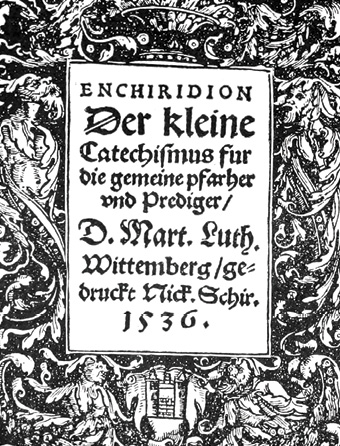When the Holy Spirit connected Philip with the treasurer for Candace, the queen of the Ethiopians, Philip heard him reading from the Book of Isaiah. When Philip asked the man if he understood what he was reading from Isaiah, the man said, “How can I, unless someone guides me?” (Acts 8:31)

We appreciate guides who know the way. When traveling in a foreign country, we appreciate having guides who know the area and can get us safely to our destination.
There is nothing more naturally foreign to man than the way of God and His will for us. Oh, we could guess what God would have us do and how we can find Him, but no one, by nature, knows the way (1 Corinthians 2:14). We are spiritually blind sinners, groping around in our lost condition, hoping to find the right way and do the right thing (Acts 26:18). Like the Treasurer, we need a guide.
Thank God that He hasn’t left us lost in the dark! He has given us His Word as lamp to our feet and a light to our path (Psalm 119:105). In the Bible, the one true God has revealed Himself to us and shown us His Son, our only Savior from sin. In the Bible, God also reveals His will for us as His children.
While the Bible is the only light we need, we, like the Treasurer, still could use a guide to take us through the Scriptures. Christian parents could use a guide to help them carry out the Lord’s calling to teach His Word to their children (Deuteronomy 6:7).
Knowing we need a guide to instruct young and old about the basics of the Bible, Martin Luther put together the Catechism. A catechism is a book of questions and answers used to instruct someone. Luther felt compelled to write his catechism after touring congregations in Saxony and finding that many of the baptized Christians didn’t know the Lord’s Prayer, the Apostles’ Creed, or the Ten Commandments. He was likewise appalled that even the pastors were largely ignorant of the basic teachings of the Bible.
For this reason, Luther wrote both the Small Catechism and the Large Catechism. His Small Catechism, published in 1529, consisted of just the basic teachings of the Bible and explanations to the Ten Commandments, The Apostles’ Creed, the Lord’s Prayer, Baptism, Confession, the Sacrament of the Altar, various daily prayers, and the Table of Duties. His Large Catechism expanded on each of these “Chief Parts” of the Bible. He gave it with these instructions: “Which the head of the family shall teach to his household.” Luther intended that his catechism would be used as a guide for parents to teach their children about the Christian faith and life.
But Luther did not intend his catechism to be used ONLY for children. No, Luther says, “Every morning, and whenever else I have time, I read and recite word for word the Lord’s Prayer, the Ten Commandments, the Creed, the Psalms, etc. I must still read and study the catechism daily, yet I cannot master it as I wish, but must remain a child and pupil of the catechism, and I do it gladly.” (Book of Concord, Tappert ed., p.359; Fortress Press, 1959) What a thought! The great Reformer, the Doctor of Theology, Martin Luther, regularly went back to the catechism to guide him back to the basics of the Bible! When was the last time you pulled out your catechism?
Back to the Ethiopian Treasurer, we read in Acts 8 that, beginning with the verse of Isaiah that he was reading, Philip told him the good news about Jesus. After having been instructed and then baptized by Philip, the man “went on his way rejoicing.” (Acts 8:35-39) Let us also rejoice for those who have guided us to the good news about Jesus as our Savior from sin and only hope for heaven. Give thanks for the guides God used in your life—your Christian parents, your pastors and teachers, and yes, the Catechism.
"Lord, help us ever to retain The Catechism's doctrine plain As Luther taught the Word of truth In simple style to tender youth. Amen." (TLH 288:1)
For online access to Luther’s Small and Large Catechism, visit www.BookofConcord.org
is pastor of Berea Lutheran Church in Inver Grove Heights, Minnesota.


